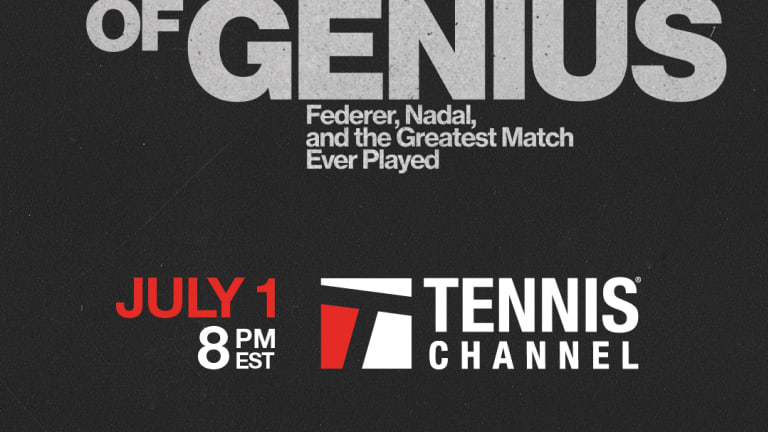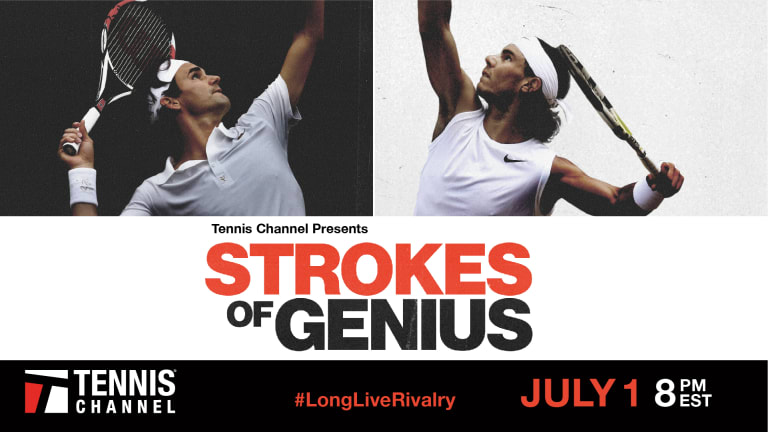Tennis is known for its so-called popcorn matches: Fabio Fognini vs. Gael Monfils, for example, is a tasty treat we simply can't resist. Then there are matches so good that they're worth revisiting 10 years later, canonized in film for posterity. Only a movie—and the requisite buttery, salty snack—will do.
Such is the case for tennis' ultimate popcorn match, the 2008 men's Wimbledon final between Roger Federer and Rafael Nadal. Even a book wasn't enough to put this turf war into proper perspective. And so, nine years after the release of Strokes of Genius—Jon Wertheim's inside account of the iconic match—Strokes has been made into a feature-length documentary. With a run time around 90 minutes, the film expands upon themes Wertheim explored in the original Strokes of Genius: the compelling contrasts between Federer and Nadal; their near-universal appeal despite those differences; their rivalry, which has only become more layered since; and, of course, the tennis masterclass they put on.
The documentary's revealing interviews—Federer and Nadal included—and artful composition demanded an interview with Wertheim, who is to tennis what Ken Burns is to baseball. After viewing Strokes of Genius, which will debut worldwide on Sunday, July 1 at 8 p.m. EST on Tennis Channel, I had a chance to turn the tables on its creator.
Strokes of Genius trailer, presented by Humana:

